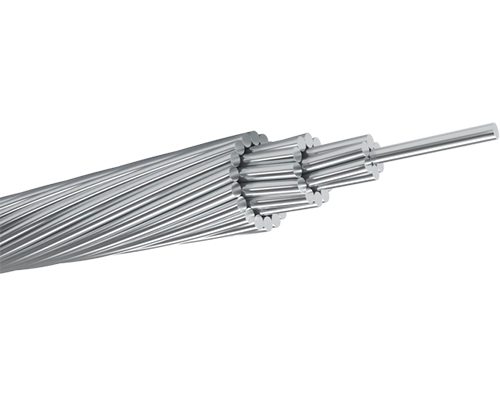Jun 06, 2025
The Differences Between ACS and ACSR Conductors Explained

Composition and Structure
What is Inside ACS Conductors
ACS conductors have a steel core coated aluminum layer. This mix gives them strength and solid conductivity. The aluminum layer keeps the steel safe from rust while staying super tough. That makes ACS conductors awesome for spots where they need to be strong and handle tough weather.What is Inside ACSR Conductors
Aluminum Conductor Steel Reinforced (ACSR) is made with layers of hard-drawn aluminum wires around a galvanized steel core. The core might be one wire or a few, depending on the size. You can add grease to the core or the whole conductor to fight off rust. This setup makes ACSR conductors strong yet flexible for different line designs.How ACS and ACSR Are Built Differently
The main difference between ACS and ACSR is the core. ACS has a steel core coated in aluminum for strength. ACSR, though, uses a galvanized steel core with aluminum wires wrapped around it. The steel in ACSR makes it sturdy. The aluminum wires help it carry electricity well. ACS’ aluminum coating boosts its rust resistance without making it weaker.Electrical Conductivity
How ACS Conductors Carry Power
ACS conductors do a great job moving electricity thanks to their aluminum coating. This layer cuts down on resistance and protects the steel core from rusting.ACS conductors, which do not transmit current, are mainly used as a carrier wire or grounding wire.
How ACSR Conductors Carry Power
ACSR conductors are designed for strength in power lines. You can tweak the steel core to get the strength you want without messing up the electrical flow. The combination of aluminum wires and a steel core keeps ACSR conductors conductive while handling heavy loads.Steel core is mainly used to carry strength, aluminum wire is mainly used to carry current.
Comparing Their Electrical Performance
Both ACS and ACSR are super efficient for moving power for each situation. ACS might be a bit better in places where rust is a big worry because of its aluminum coating. ACSR, on the other hand, gives you more wiggle room to balance strength and electrical performance.ACSR is electrically superior to ACS, which has only a small conductivity and is not used for direct current transfer, for grounding or carrying wires. ACSR is used for direct current transfer.
Corrosion Resistance
How ACS Prevents Rust
The aluminum coating on ACS conductors is awesome at keeping rust away. It shields the steel core from moisture and pollutants. It makes ACS a great pick for coastal spots or humid areas where rust is a real issue.If ACS is oiled, the corrosion protection is better.
How ACSR Prevents Rust
ACSR conductors can get extra rust-resistance with grease on the core or throughout the cable. But they might still rust more easily than ACS in rough conditions because their galvanized steel is exposed.What Causes Rust
Things like humidity, salt, temperature changes, and industrial pollutants can make conductors rust faster. Both ACS and ACSR are built to handle tough environments. Picking the right one depends on the specific conditions of the location.By checking conductors’ materials, design, power performance, and rust resistance, you can see that each conductor has its own strengths depending on what project really needs.
Applications
Where You would Use ACS Conductors
ACS conductors are super common in overhead power lines for transmission and distribution. Its aluminum-clad steel core gives it strength and rust-resistance, which makes them efficient in harsh environments. The aluminum coating keeps the steel protected and staying strong. ACS conductor is a top choice for coastal or humid areas where conditions are rough, and it also very suitable for long spans or river crossings since it holds up so well.Where You would Use ACSR Conductors
ACSR conductors are used for bare overhead transmission lines, primary and secondary distribution, and as support cables. Its design, with a galvanized steel core and aluminum wires, makes it very strong. You can adjust the steel core to get the strength you need without losing conductivity. Such flexibility makes ACSR great for high-voltage lines, rural power setups, and industrial distribution.What Helps You Choose
Making decision between ACS and ACSR depends on the environment, strength needs, and your budget. ACS is the way to go when rust-resistance is necessary because of its aluminum coating. ACSR is better for projects that need strong mechanical properties, flexible design and power transfer. Elements including span length, load capacity, and temperature changes also play a big role in picking the right conductor.How Weight Plays a Role
Weight is a big deal when picking conductors. ACS conductor is lighter than ACSR because of its aluminum coating, which cuts down on sag and makes it great for long spans or places with limited support. ACSR conductor, with its aluminum wires and steel core, have a higher weight-to-strength ratio, which makes it sturdy but can lead to more sag under heavy loads or hot weather..png)


